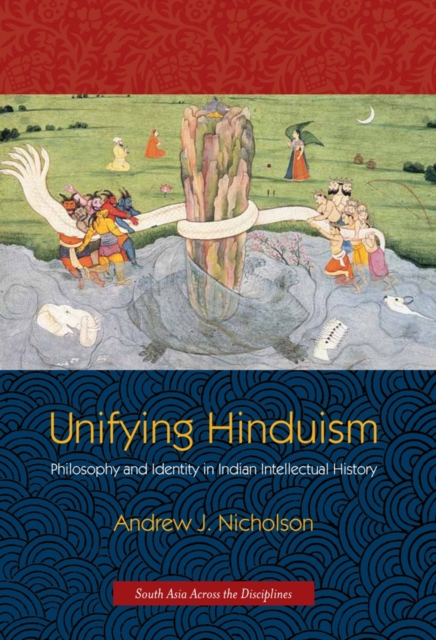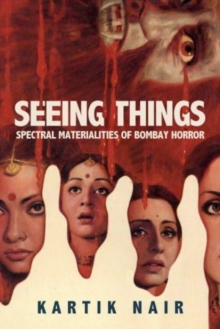
Unifying Hinduism : Philosophy and Identity in Indian Intellectual History EPUB
by Andrew J. Nicholson
Part of the South Asia Across the Disciplines series
EPUB
Description
Some postcolonial theorists argue that the idea of a single system of belief known as "Hinduism" is a creation of nineteenth-century British imperialists. Andrew J. Nicholson introduces another perspective: although a unified Hindu identity is not as ancient as some Hindus claim, it has its roots in innovations within South Asian philosophy from the fourteenth to seventeenth centuries. During this time, thinkers treated the philosophies of Vedanta, Samkhya, and Yoga, along with the worshippers of Visnu, Siva, and Sakti, as belonging to a single system of belief and practice. Instead of seeing such groups as separate and contradictory, they re-envisioned them as separate rivers leading to the ocean of Brahman, the ultimate reality.
Drawing on the writings of philosophers from late medieval and early modern traditions, including Vijnanabhiksu, Madhava, and Madhusudana Sarasvati, Nicholson shows how influential thinkers portrayed Vedanta philosophy as the ultimate unifier of diverse belief systems. This project paved the way for the work of later Hindu reformers, such as Vivekananda, Radhakrishnan, and Gandhi, whose teachings promoted the notion that all world religions belong to a single spiritual unity. In his study, Nicholson also critiques the way in which Eurocentric concepts like monism and dualism, idealism and realism, theism and atheism, and orthodoxy and heterodoxy have come to dominate modern discourses on Indian philosophy.
Information
-
Download - Immediately Available
- Format:EPUB
- Publisher:Columbia University Press
- Publication Date:14/10/2010
- Category:
- ISBN:9780231526425
Information
-
Download - Immediately Available
- Format:EPUB
- Publisher:Columbia University Press
- Publication Date:14/10/2010
- Category:
- ISBN:9780231526425










